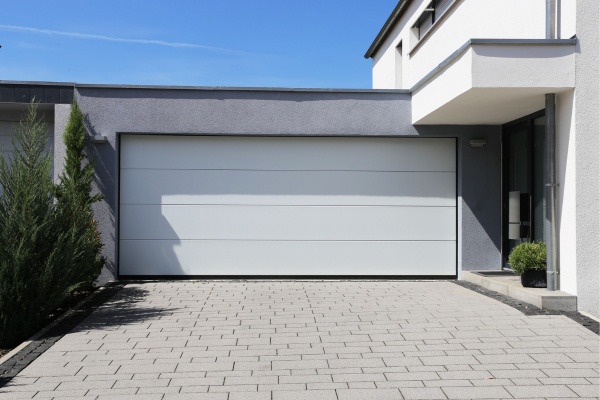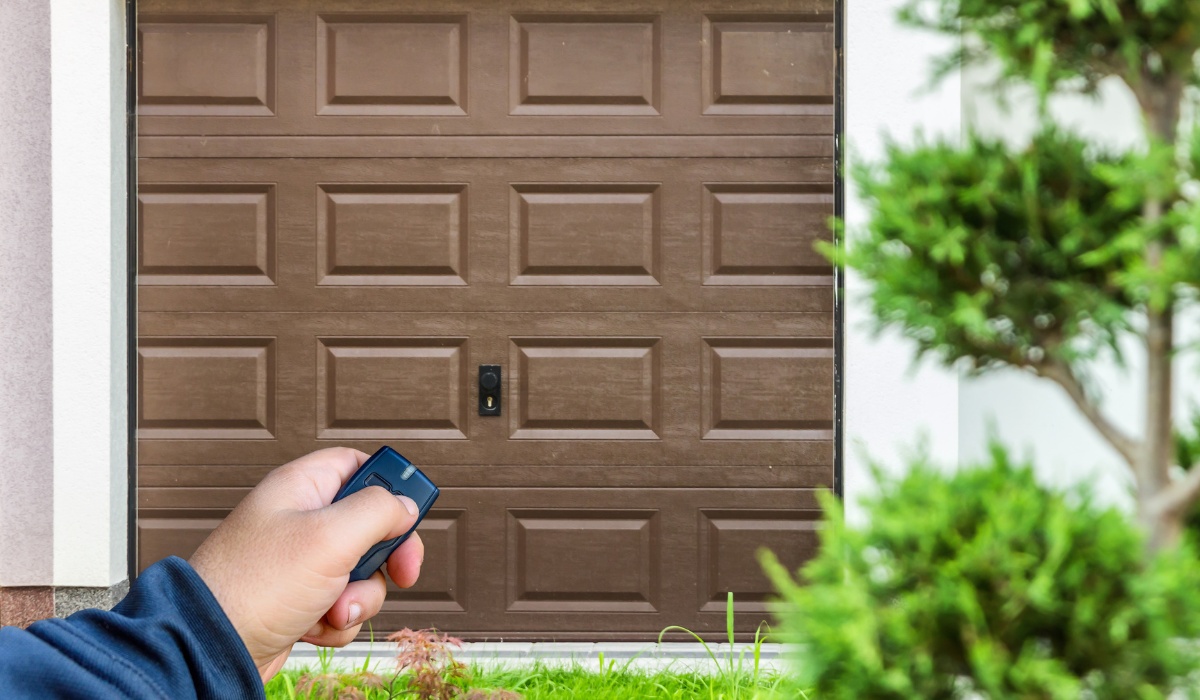Choosing the right garage door can significantly impact your home's energy efficiency, comfort, and overall value. This comprehensive guide explores the world of insulated garage doors, helping you understand their benefits, types, costs, and maintenance needs. Let's dive in!
What Are Insulated Garage Doors?
Insulated garage doors are designed to minimize heat transfer between your garage and the outside environment. Unlike standard garage doors, they incorporate insulating materials within their panels, creating a thermal barrier that improves energy efficiency and reduces noise. These doors are constructed using various materials, each offering unique insulation properties and aesthetic appeal. Factors like the R-value and U-value are critical in determining a door's thermal performance and effectiveness in regulating garage temperature.
What Are the Benefits of Insulated Garage Doors?
Investing in insulated garage doors offers numerous advantages. Firstly, you'll experience enhanced energy efficiency, leading to lower heating and cooling bills. This is particularly beneficial in extreme climates. Secondly, improved climate control keeps your garage more comfortable year-round, whether you're using it as a workshop or storage space. Noise reduction is another key benefit; insulated doors significantly dampen external sounds, creating a quieter home environment. Enhanced security is also a factor; the robust construction of these doors often provides better protection against forced entry.
How Do Insulated Garage Doors Work?
The magic lies in the insulated panels. These panels typically incorporate materials like polyurethane foam or polystyrene, offering excellent thermal resistance. These materials are sandwiched between the inner and outer layers of the door, creating an effective barrier against heat transfer. The R-value, a measure of thermal resistance, and the U-value, representing the rate of heat transfer, are crucial indicators of a door's insulating capabilities. A higher R-value and a lower U-value signify better insulation performance.
What Types of Insulated Garage Doors Are Available?
The market offers a variety of insulated garage doors, each with its own pros and cons. Steel doors are popular for their durability and affordability, often featuring polyurethane foam insulation. Wood doors provide a more aesthetically pleasing, classic look, though they require more maintenance. Fiberglass doors offer excellent insulation and are resistant to dents and scratches. Composite doors combine the benefits of different materials, offering a balance of insulation, durability, and aesthetics. Beyond materials, you'll find variations in styles like overhead, https://garage-doors-edmonton.localo.site/blog/4803858935802556505-we-specialize-in-commercial-garage-door sectional, and rolling doors, each with its own mechanism and design features.
How to Choose the Right Insulated Garage Door?
Selecting the perfect insulated garage door involves careful consideration. Your budget is a primary factor, with costs varying significantly between materials and styles. The insulation type (polyurethane, polystyrene, etc.) directly impacts energy efficiency. Consider your aesthetic preferences—do you prefer a modern, traditional, or carriage house style? Accurate measurements of your garage opening are vital for a proper fit. Checking local building codes and seeking professional advice from a garage door installer is recommended for a seamless installation process.
How Much Do Insulated Garage Doors Cost?
The cost of insulated garage doors varies greatly depending on several factors. Material type significantly impacts pricing; steel doors are generally the most affordable, while wood and composite doors tend to be more expensive. Size and style also play a role; larger and more complex designs will typically cost more. Installation costs should also be factored into your budget. However, remember that the long-term savings on energy bills can significantly offset the initial investment, making insulated garage doors a worthwhile investment in many cases.
What Maintenance Is Required for Insulated Garage Doors?
Regular maintenance ensures your insulated garage door's longevity and performance. Inspecting the door's tracks, rollers, and springs for any signs of wear and tear is essential. Lubricating moving parts prevents friction and ensures smooth operation. Checking and replacing weather stripping around the door frame helps maintain its insulating capabilities. Addressing any issues promptly, such as damaged panels or malfunctioning components, prevents more extensive and costly repairs down the line. Professional maintenance checks can be scheduled annually for a thorough inspection and preventative measures.
Home Energy Audits: A Quick Guide
Conducting a home energy audit can reveal areas where your home loses energy, including your garage. This audit may involve inspections to identify air leaks around windows, doors, and other openings. By addressing these leaks, you can significantly improve your home's overall energy efficiency and reduce energy consumption. The results of the audit might show that upgrading your garage door is a worthwhile energy-saving investment.
Eco-Friendly Options: Sustainable Choices
Many manufacturers now offer environmentally friendly garage doors. These doors may utilize recycled materials in their construction or employ sustainable manufacturing processes. Look for certifications and labels indicating eco-friendly materials and manufacturing practices. Choosing these options contributes to reducing your environmental impact while still enjoying the benefits of an insulated garage door.



Frequently Asked Questions
How do I install an insulated garage door? While DIY installation is possible for some, professional installation is often recommended to ensure proper functionality and safety.
Can I retrofit my existing garage door with insulation? In some cases, retrofitting insulation is possible, though the effectiveness will vary. Consult a professional to assess your options.
What factors affect the energy efficiency of a garage door? The R-value, U-value, the quality of weather stripping, and the overall seal are primary factors.
Are insulated garage doors worth the investment? Absolutely! The long-term energy savings, improved comfort, and enhanced security often outweigh the initial cost.
In conclusion, upgrading to insulated garage doors offers a multitude of benefits, from increased energy efficiency and comfort to enhanced security and home value. By understanding the different types, choosing the right one for your needs, and performing regular maintenance, you can enjoy years of reliable performance and significant cost savings. Begin your search for the perfect insulated garage door today!